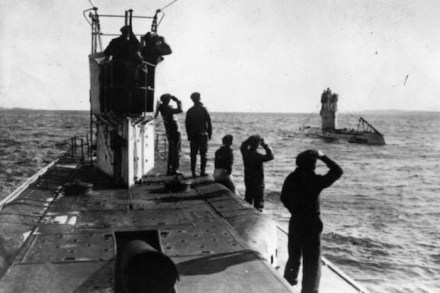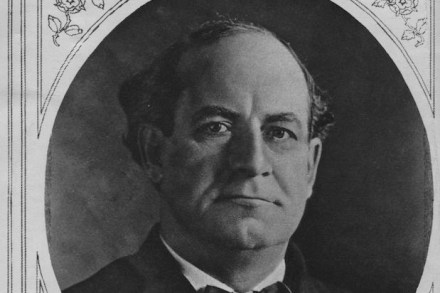Dogs 9
‘I can understand why Speaker Bercow doesn’t like walking — he’s only got little legs’
‘I can understand why Speaker Bercow doesn’t like walking — he’s only got little legs’

‘Ne’er cast a clout till July be out….’

What we’re building Sir: I was surprised and frustrated to read Ross Clark’s piece on housing associations in last week’s edition of your magazine (‘Stop moaning, start building’, 25 July). Surprised because it seemed to misrepresent the facts concerning housing associations, and frustrated because the analysis offered by Mr Clark ignores the key role that
Safe house Lord Sewel is unique in leaving the House of Lords in disgrace. Until the House of Lords Reform Act 2014, only a treason conviction earned you expulsion from the House of Lords, and that only since 1870. At least two peers have been executed for treason, Simon Fraser, 11th Lord Lovat, and William

Home A man died when 1,500 migrants tried to enter the Channel Tunnel terminal in Calais in one night. The night before, 2,000 had tried. Theresa May, the Home Secretary, spoke of spending money on fences. The Foreign Office warned travellers to the Continent via Calais that they should be prepared to return by a

The shaming of Lord Sewel was a classic tabloid exposé. The fact that a peer of the realm (albeit one appointed by Tony Blair) was caught on camera apparently ingesting Class A drugs in the company of prostitutes is a good enough story in itself. The fact that the peer in question was chairman of

From ‘The Problem of Public Assistance’, The Spectator, 31 July 1915: In one respect big reforms are actually easier in times of national emergency than in times of peace, for the collective purpose of the nation is in the crisis of a great war more firmly set, and therefore better able to overcome sectional and

From ‘The new standard’, The Spectator, 24 July 1915: If a change must be made at all, it is worthwhile to make a great change, to put right our mistakes, to get any happiness that a rearrangement can give us. We fear that at first a new way of life may come rather hard upon the
From ‘The New Standard‘, The Spectator, 31 July 1915: Where food and service are concerned we believe there are a fair number of people who will be glad of some necessity which shall compel them to lead a simpler life. It is not that they do not enjoy their fine food and the ease which comes

From ‘The American Note to Germany‘, The Spectator, 31 July 1915: German submarine methods cannot possibly continue on their past lines without sooner or later sacrificing another American life. The German submarines could no doubt continue, on a small scale, to sink merchantmen bringing supplies to Britain if they made full inquiries as to the

From ‘The Struggle in Russia‘, The Spectator, 31 July 1915: We must not write more than a few lines, but we cannot do less, in admiration of the Russian endurance, doggedness, and skill. If we indulged our inclination in this respect, we should write an article about nothing else. All our sympathy and deep respect

The spat between Boris Johnson and Theresa May over the acquisition of three second hand ones from the German police has the air of a dormitory water pistol fight that has left an unprepared Johnson standing in dripping pyjamas. It has become a received wisdom that the incident raises questions about Johnson’s fitness for high


From ‘Coal and its Problems‘, The Spectator, 24 July 1915: The high price of domestic coal, though undoubtedly an immediate injury to the country, will prove an ultimate benefit. Politicians never seem capable of understanding that high prices if left alone kill themselves, first by reducing consumption, and secondly by stimulating production. The only condition
From ‘Germania contra mundum’, by Lord Cromer, The Spectator, 24 July 1915: What, therefore, are we and our Allies fighting for? Without attempting to deal fully with the considerations which may be adduced in connexion with each separate branch of this subject, it may perhaps be as well to make a catalogue— and possibly an

From ‘The Pacificist Vision’, The Spectator, 24 July 1915: It must not be supposed that the majority of Americans are pacificists, but there are enough pacificists to force a strong tide of feeling through the country. In the West an advanced pacificisin—what seems to us, when we reflect on the probable results, a hopelessly unthinking

‘Mein Gott! Is the Führer really doing a royal wave?’


‘That’s enough homework — dinner’s ready.’
